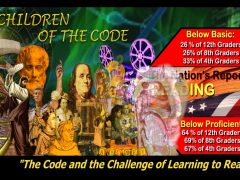The “Children of the Code” project conducted over one hundred in-depth interviews with leading scientists and scholars whose expertise contributed to our prevailing understanding of the “the code and the challenges involved in learning to read it”. Children of the Code Interviewees “This program and the kind of effort that you’re doing seems to be […]

